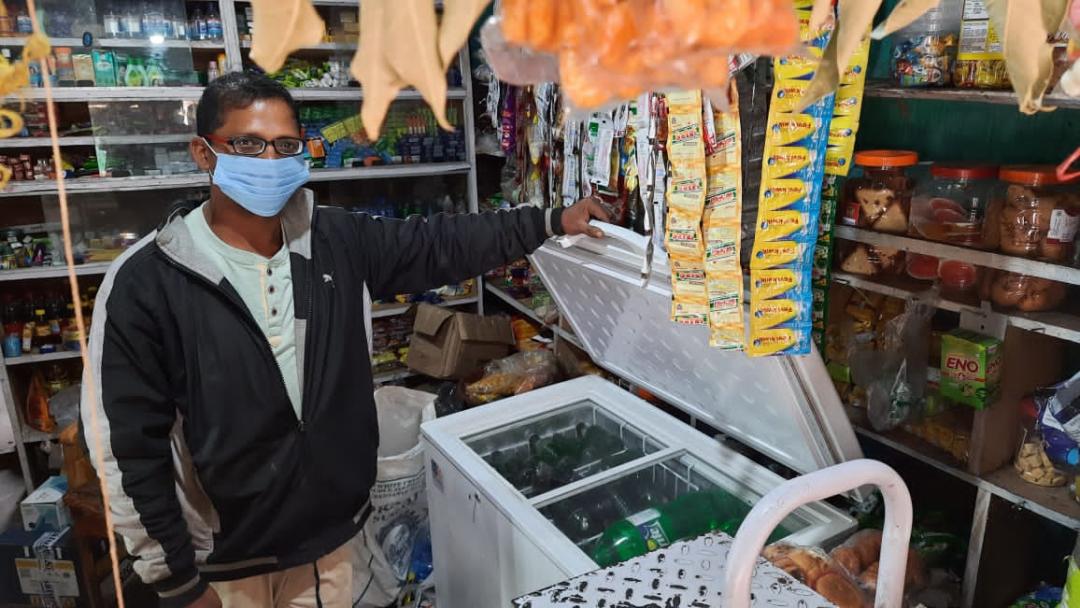Improving livelihoods through solar solutions in rural India
Devidayal Solar Solutions focuses on the design, development and sale of solutions in the distributed renewable energy cold chain space in India. By collaborating with different stakeholders, it aims to provide a reliable electricity supply to households at the base of the pyramid. This enables rural households and entrepreneurs to replace traditional diesel gensets with clean energy.
At the UN Climate Change Conference in November, world leaders will discuss how to encourage investments in renewables. What would you like to tell them about solar solutions in low-income communities?
There is a need for off-grid appliances that directly impact the lifestyle of low-income communities. As of today, India has achieved 99.93 percent electrification, including power packs for lighting and mobile charging in rural areas. However, the reliability of electricity supply remains a challenge. This impacts the health and socio-economic status of many people.
Research studies highlight the transformative role of off-grid solar appliances like televisions, fans, and refrigerators in rural development. By unlocking latent demand for energy services, these off-grid appliances have the potential to deliver significant economic, health-related, educational, and other benefits for a large number of consumers. They also contribute to achieving the Sustainable Development Goals: SDG 1 (poverty reduction), 2 (food security), 3 (health and well-being), 4 (education), 8 (jobs and entrepreneurship), and 13 (climate action).
We believe that this huge challenge of unreliable electricity supply can only be resolved if all the stakeholders collaborate – social enterprises, on-ground partners, government organisations and everyone from these households.
How do you convince low-income consumers to invest in renewable energy?
Our flagship product is a solar-powered refrigerator, which we mainly market to rural entrepreneurs. To convince them of our product, we make them understand the income opportunity: input costs decrease, while output, quality, and product range go up. From the impact assessment of our solar refrigerators, we understand that customers have generated an incremental income of Rs 4000-7000 (50 to 80 Euro) per month.
To make sure that our products meet the needs of low-income consumers, we develop solutions through an ecosystem approach. In the case of refrigerators, we first conduct a needs assessment for our potential beneficiaries. Based on their geography and market segment, we suggest products of the right size, type, autonomy, and cooling capacity. Following that, we support them with the right financing facility.

What other challenges have you identified as a last-mile distributor of solar solutions?
I will focus on solar refrigerators, our main working area.
In India, off-grid refrigeration is still at a nascent stage in rural areas. The initial investment costs for consumers are high, and there is a lack of enabling infrastructure, including roads. Also, many people aren’t aware that perishable products should be stored cold.
How have you overcome these challenges?
The key is to improve affordability through financing and economies of scale. We have also worked hard to understand consumer needs and increase their awareness through marketing.
What are the strengths and weaknesses of the clean energy sector in India, and how do you expect it to develop in future?
The clean energy off-grid appliance sector is still nascent in India, but on the cusp of transformational growth. While almost every rural household has been connected to the grid, reliability remains a challenge: Less than one out of four rural households have access to a reliable energy supply. This is why the Indian solar appliances market has moved from a pure off-grid to a mainly week-grid market: In places where the power grid is unreliable, off-grid solar energy is a back-up option for consumers. The Efficiency for Access Coalition’s 2019 State of the Off-Grid Appliance Market report estimated the obtainable market size for TVs, fans, and refrigerators in India could reach over US$9 billion by 2030.
What are the main barriers to growth of the sector?
The most significant constraints are related to financing, both for consumers and product innovators. We pitched our impact data on solar refrigerators to a lot of financial institutes and signed a financing agreement with Ashv Finance last month.
The Indian government is working to address this challenge and promote off-grid solar refrigerators. Interventions include either guidelines or financial assistance through capital subsidies, interest subventions, and concessional loans. Most schemes, however, focus on large scale infrastructure development rather than small entrepreneurs.
